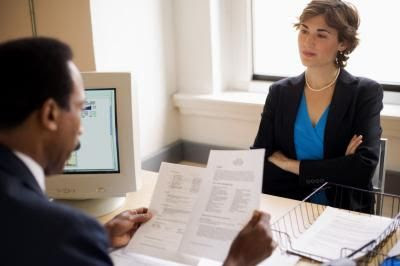How to Describe Clerical Duties in a Resume
When applying for a clerical position, you want to be sure you are marketing yourself in the best light possible. Your future employer needs to know that you have initiative, are hard-working and can tackle most any clerical duty with ease. Learn to describe your duties on your resume in such a way that you catch the eye of your future employer.
Instructions
- 1Use action verbs to describe your duties, suggests Purdue University's Online Writing Lab. Action verbs help to strengthen your duties and make them more concrete. Verbs that reflect action also allow you to shorten your descriptions, permitting your resume to remain simple yet compact. For example, you would change, "Was responsible for purchasing supplies" to "Purchased supplies."
- 2Remove extraneous uses of "a", "an" and "the" in your descriptions, recommends Quintessential Careers. Articles tend to muddle the resume, making it take longer to peruse. Employers want to scan through your resume quickly, as they may have dozens from which to sort. Instead of saying, "Facilitated the creation of a job-share program," you would say, "Facilitated creation of job-share program."
- 3Add seasonal duties in your resume, such as those that only occur once or twice a year. Constructing semi-annual reports, though not a large part of your regular workload, should still be included on your resume. It is easy to forget smaller, non-regular project duties when constructing a resume.
- 4Include additional job responsibilities that you took on outside of your regular job description. For example, if you initiated flier designs for an event that your boss was originally planning to contract out, say so in your resume. Be sure to mention how much you saved the office by designing the fliers yourself. You can say something like, "Designed fliers for event (on initiative), saved office $1,000 dollars."
- 5Indicate your success in carrying out responsibilities, instead of simply describing them, suggests Hcareers' website. Instead of merely stating you have filing experience, indicate what you filed and how well you did it. If you were responsible for the filing of thousands of documents, say so. If your boss praised your efforts because you helped upgrade the filling system at your old job, indicate this on your resume by saying, "Streamlined filing system, was praised for added efficiency." Future employers want to know that you will be a hard-working, driven employee.
- 1






